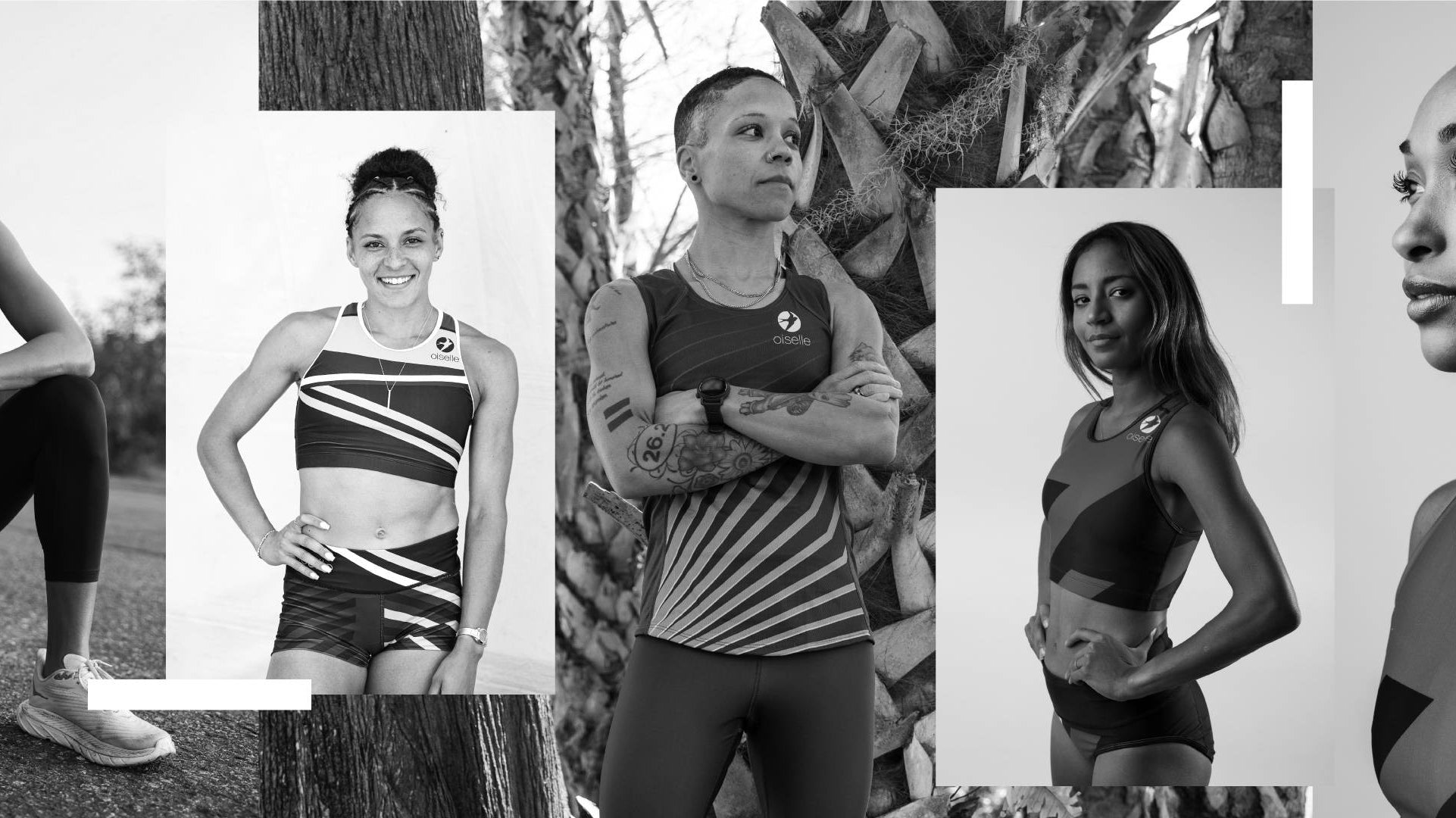
I’ve heard descriptions of 3 different types of masters runners: straight through (ran young, kept running, still running), start-stop-start (ran young, took a big hiatus, started back up), and “newbie” – started running seriously for the first time well into adulthood. I’m a start, stop (x17 years), start master’s runner, which makes me super vulnerable to injury. Turns out, muscle memory can take you pretty far…and it can also really quickly take you into the danger zone.
Even while moderating, I’ve discovered that the running can still be super interesting, even if the thing you are currently chasing is not a life PR, but an age PR. Each year you get the opportunity to turn the page and start fresh with your one-year-older body, and see what you accomplish. What I did at age 41, 44, and 48 is in the rear window. No comparison allowed.
Several weeks ago, I had the honor and privilege of leading two masters running sessions at Oiselle’s #BigBirdcamp. I was super pumped to meet more of the masters women I’d been communicating with online. About 25 women attended each session. My first reflection was: how awesome to see so many women over 40 take a weekend for themselves for their own physical and emotional refreshment! Amen to that!

Our ages ranged from 39 (getting a jump start) to 65 (hello, badass Nancy!). Big takeaways from our sessions:
- Sleep is paramount. As hormones fluctuate, sleep disturbances become more common. Do what you need to do to protect your sleep hours, and catch up/ push workouts out if sleep is compromised!
- Hormone changes (in perimenopause, estrogen fluctuates then decreases, and testosterone decreases) hit every athlete differently. In our groups, some women found great relief from HRT (estrogen + progesterone for women with a uterus). Hormone replacement decisions should be made on the individual level between the athlete and her doctor, evaluating risks/ benefits carefully.
- Regular blood testing is important! I’ve received such useful information (with corrective recommendations) from athletebloodtest.com on red cell turnover, training load tolerance, and micronutrient status. If you are training at a high level, consider blood testing with athlete parameters every 3-6 months.
- Nutrition: It’s individualized! Many of our masters noted great improvement from working with a nutritionist. Consider this option!
- Get a coach who understands masters runners and their particular athletic needs (see below). Fleshman has been great at this, and adapts her recommended workouts to my and Sally’s masters roller-coaster bodies.
- Training: ok this was the super meaty and interesting portion for me. One reproducible finding: recovery is key. RECOVERY IS KEY! You may be able to do the same intensity of workout at age 47 that you could at age 37, but if you can’t recover from the workout in time for the next workout, you need to back off of the work. It doesn’t matter if you can do it, it matters if you can reliably recover from it.
At some point between age 36 and 47 (for the women in our groups), they all moved from Tues/Fri/LR Sun pattern of workouts to Wed/Sun: Wed being the workout (speed, VO2, etc.) and Sunday long run with some type of work in it. Strength work/lifting should be done on the same day as workout, so that off or recovery days are truly that. So, with that pattern, if you aren’t fully recovered from Sunday’s LR by Wed, or Wednesday’s workout by Sunday, you need to decrease either the intensity or duration of the work. Full stop. The women also reported taking every 3rdor 4thweek as a down week (~60% of usual mileage), 1-2 days of non-running/week, and plenty of down time after each race.
The myth is that you “slow down” as you get older. But a more accurate description is that your recovery slows down, and at a certain point you just can’t do the necessary training to run X time without getting injured. (Yep, I’ve jumped into workouts that are over my head in the past 6 years, and although it’s way fun, that 3 week recovery really takes a bite into training).
But, now to the art and joy: being around all of these women at camp—serious athletes, powerful voices, all willing to share their experiences and triumphs—was a super boost to my motivation. So many women, with so many compelling stories, fast times, and fun new experiences they are gunning for. And for me, seeing the strong women in their 50’s and 60’s confidently setting goals, lifting weights, and persisting, paved a path for me as I am about to turn 50. So let’s keep sharing the wisdom and motivating each other. There is no secret. Just keep going.

Want more info on master's running? Check out Ask a Master 1, 2, and 3 straight from the O archives!











